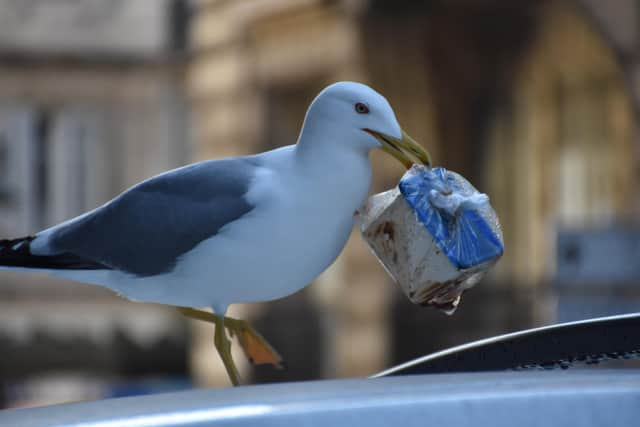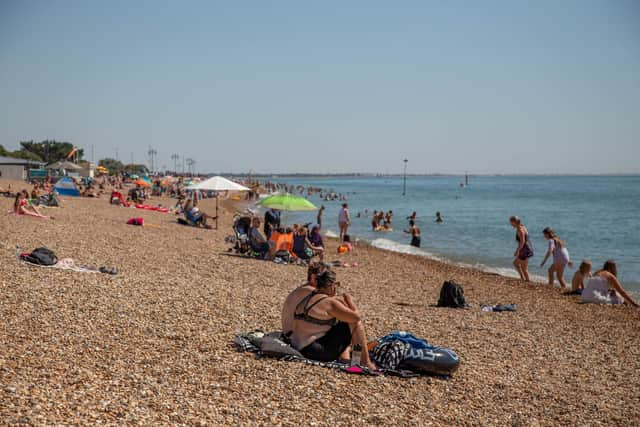Southern Water and Environment Agency claim roosting seagulls could be behind marked rise in seawater pollution
and live on Freeview channel 276
Portsmouth City Council is investigating what is causing the fall in quality at Southsea East, west of South Parade Pier on Southsea seafront.
Southern Water is working with the authority and the Environment Agency and has suggested the issue could be caused by gulls gathering under the pier or possibly by leaks from small pipes as there is no sewage outfall in the area.
Advertisement
Hide AdAdvertisement
Hide AdA spokesman for the firm said: “Seagulls are roosting under the pier which can be a problem. We have to speciate the E.coli; by looking at the samples we can find out the type of animal source it comes from.”


Steve Pitt, leader of the council, said that if the water at Southsea East was rated by the Environment Agency as poor later this summer it would be forced to advise people not to go into the sea on that stretch of beach from next May.
He said: “This is an issue where all organisations involved are working together as urgently as possible to find out what’s going on and fix the problem.”
The investigation has examined possible sources including ongoing coastal defence works, leaks from the pier, contaminated groundwater, as well as potential sewage releases by Southern Water, but the council says there are no sewage outfalls in the area.
Advertisement
Hide AdAdvertisement
Hide Ad

A Southern Water spokesman said: “We take any decline to water quality in our region extremely seriously, and have been working closely with the Environment Agency and Portsmouth City Council for more than a decade to tackle concerns in this area.
“Over this time, leaking ageing sewers have been identified as one contributing factor, prompting a major upgrade programme involving sealing pipes with special polymer linings and ensuring manholes are watertight.
“Others contributing factors include surface water run-off from roads and pavements, wildlife such as seagulls roosting beneath the pier, and private sewer pipes wrongly connected to surface drains.
“We are continuing to support our partners in finding solutions, and are actively carrying out water quality sampling tests to help direct further investigations and action.”